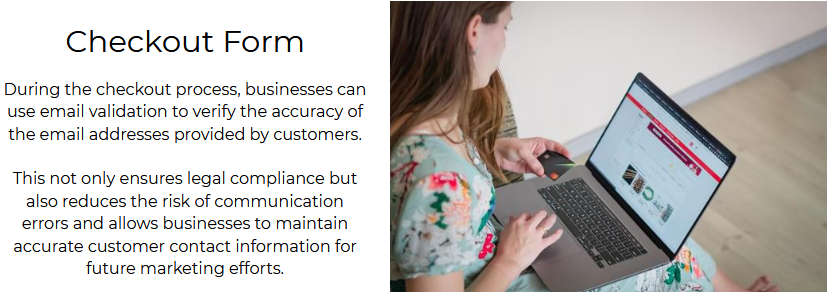Understanding Email Laws And Regulations

Email Marketing is a powerful tool for businesses to communicate with customers and promote their products or services.
However, it is important for businesses to understand and comply with the laws and regulations governing email marketing and email campaigns to avoid significant fines and legal consequences.
In Australia, the Spam Act 2003 and the Privacy Act 1988 regulate electronic communications, including marketing emails, SMS and calls, to ensure privacy and prevent spam.
The Spam Act focuses on commercial electronic messages, requiring consent, accurate sender information, and an option to unsubscribe. Meanwhile the Privacy Act outlines broader privacy principles, including the handling of personal information.
Understanding the specific requirements and conditions for email marketing in each jurisdiction is crucial for businesses targeting residents in different regions. Non-compliance can results in fines and damage to reputation.
How Hopewiser Can Help
Validating email addresses during the online checkout process will ensure compliance and using email validation prior to marketing campaigns enables businesses to reduce bounce rates, protect their brand, and avoid violating spam laws and regulations.
Ensure compliance with email marketing laws while improving email delivery with Hopewiser’s Email Address Validation service.
How Does GDPR Affect Your Emails?

The General Data Protection Regulation (GDPR) has significant implications for businesses that handle email data. It requires businesses to ensure personal data – which includes emails – is compliant by implementing data erasure for email retention.
GDPR, while primarily an EU regulation, applies to Australian businesses under certain conditions. Specifically, Australian businesses must comply with GDPR if they:
- Offer goods or services to individuals or businesses in the EU, even if the business operates outside Europe.
- Monitor the behaviour of individuals within the EU, such as tracking online activities for analytics or advertising.
This extra-territorial reach means that Australian entities engaging with EU residents may need to align their practices with GDPR requirements, alongside their obligations under that Australian Privacy Act.
Individuals have the absolute right to erasure of personal data that you no longer need for your specified purposes.
This means businesses must have processes in place to delete personal data when it is no longer needed for its original purpose or when the individual requests its removal.
This aligns with the GDPR’s requirements for the right to be forgotten, as outlined in Article 17 of the regulation.
The right to be forgotten gives individuals the right to request the deletion or removal of personal data when there is no compelling reason for its continued processing.
This applies to email data as well, meaning businesses must remove both accurate and invalid email addresses from their systems upon request.
However, there are exceptions to the data erasure requirement, such as when the processing of email data is necessary for reasons of public interest in the area of public health, scientific or historical research, or real-time statistical purposes.
Service providers and businesses must have procedures and systems in place to ensure GDPR email compliance and that emails are collected and retained accurately and legitimately by implementing email validation processes.
Businesses can validate and email address to ensure they belong to the individuals who provided them. In addition to improving the quality of their email database, this also reduces the risk of retaining outdated or incorrect email data.
How To Make Your Emails And Newsletters Compliant
In today’s digital age, email marketing has become an essential tool for businesses to connect with customers and drive sales. However, with increasing regulations around data privacy and security, it’s crucial for businesses to ensure that their email communications are compliant with the law.
When it comes to email marketing businesses need to be mindful of regulations like GDPR and the Spam Act, which outline strict rules for sending commercial emails.
One of the key requirements of these regulations is that businesses must obtain explicit consent from customers before sending marketing emails to them.
Email Address Validation plays a vital role in ensuring businesses only send emails to customers who have provided valid and explicit consent or at the very least be able to prove legitimate interest.
By using Hopewiser’s email validation tool, businesses can verify the accuracy of the email addresses collected during the checkout process, ensuring that they have obtained the necessary consent and are in compliance with the laws.
Here are a couple of examples of where Email Address Validation can be integrated to ensure legal compliance and improve the online checkout experience.


Email Address Validation
Let’s take a closer look at the steps involved in email validation, and the benefits it can bring to businesses.
Firstly, it typically involves syntax checks to ensure that the email address is correctly formatted. This step helps to weed out any obvious errors, such as misspelt domains or missing “@” symbols.
Additionally, domain and DNS (Domain Name System) record verification is used to check that the domain in the email address exists and is configured to receive emails. By confirming the existence of the domain, businesses can minimise the risk of sending emails to dormant or non-existent addresses.
Benefits Of Hopewiser’s Email Address Validation
- Ensure the accuracy of email addresses
- Eliminate errors or typos in data entry
- Avoid delivery failures
- Enhance data security
- Protects you from phishing scams or data breaches
- Save time and money
So why not take advantage of this essential tool and sign up for a free account today?
Find out more about Email Address Validation here.

Contact Us for more information!
, updated 2nd May 2025.
Topic: Address Cleanse






